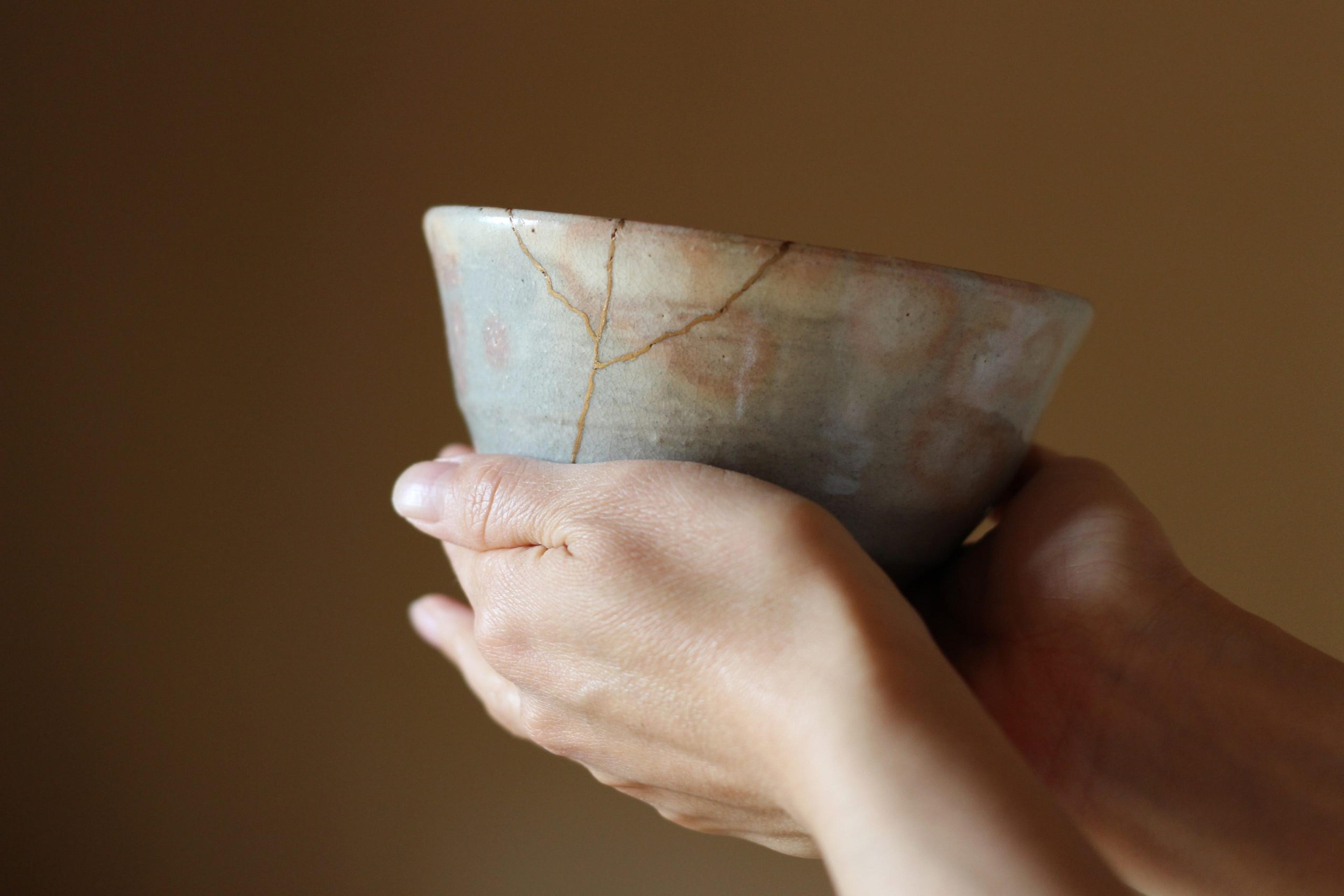
Kintsugi is the Japanese art of repairing broken pottery that reminds us to value our beauty and imperfections. Wabi-sabi and kintsugi wabi-sabi are ways of living and perceiving the world, with the aim of peacefully accepting the natural cycle of growth and decay inherent in life. The word “wabi” means simplicity and impermanence, whether elegant or rustic; “sabi” expresses the effect time has on any object. The two separate parts, when joined, complete each other. Together, “wabi-sabi” embraces an aesthetic appreciation of aging and flaws, the beauty of age and wear. It eliminates the Western concept of artificial beauty and of idolizing a state of perfection that is seemingly unachievable and unnatural. Kintsugi is a centuries-old tradition from Japan in which broken ceramics are mended with gold. These golden “scars” are a metaphor for embracing flaws and imperfections. This Japanese art encourages us to see the potential for beauty in reconstructing the broken pieces. The Kintsugi philosophy is built on the idea that, in embracing flaws and imperfections, people can create an even stronger, more beautiful piece of art. Kintsugi can be a way some people reframe hardships — for example, job loss, divorce, injury or the loss of a loved one — to remind them they can emerge stronger and that there is great beauty in broken things because scars tell a story. This can demonstrate fortitude, wisdom and resilience, earned through the passage of time. Principles of wabi-sabi and kintsugi:
Savor the present moment
Focusing on the breath, body sensations or emotions. Mindfulness practice includes being present throughout the day: enjoying the first cup of coffee in the morning, contemplating the clouds and their movement with amazement, listening more deeply and connecting with others.
Embracing one’s personal story
Each person has a unique story with its own authentic and particular beauty. Reflecting and writing about these moments allows a person to cultivate perspective and feel a sense of accomplishment and empowerment. It’s equally important to give love to the scars that have marked our lives; we must not forget that each one of them adds value to our personal story. Find beauty in simplicity: Learn to redefine beauty, expand the gaze and bring into focus elements that elicit joy and appreciation. Focus on everyday objects, interactions or things in nature. Take pictures of the beauty observed each day and create a wabi-sabi album. Learn more about the principles of wabi-sabi and kintsugi in this Blue Cross® Virtual Well-Being webinar. You can also sign up for future employer-focused and general interest webinars here, where you’ll find past sessions and resources. Related:
Photo credit: Getty Images





